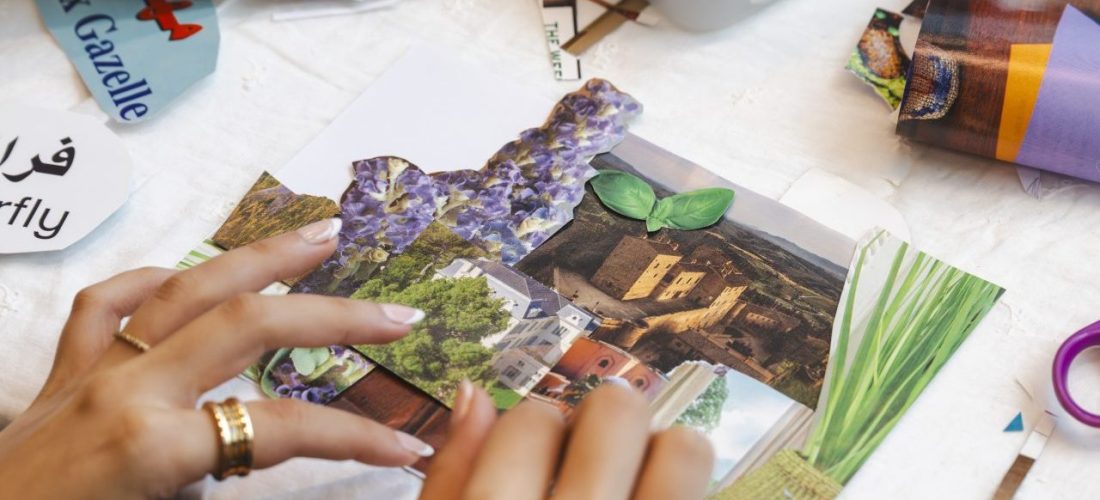Join us for Family Saturdays at Jameel Arts Centre, featuring a guided tour of the current exhibition and a series of hands-on art making activities for all ages.
This edition offers a unique opportunity to gain an in-depth insight into several works from Asunción Molinos’s first retrospective exhibition in West Asia, The Peasant, the Scholar and the Engineer.
The tour provides an exploration of the artist’s work through different mediums which investigate agricultural histories, farming communities, food and water supply systems. Following the tour, families are invited to participate in five immersive self-led activities inspired by themes of Asunción’s artistic practice. The activities engage participants with different materials to gain a deeper understanding of the artist’s sustainable artistic practice, themes, and mediums through object-making and sensory experiences.
The activities are free to attend and run all day to encourage and support creativity and imagination. Jameel Arts Centre strives to provide space for children to share stories, and to foster cultural awareness through artistic exploration that supports healthy child-development and growth.
Family Saturdays at the Jameel are suitable for all ages. All materials and step by step guides will be provided.
The tour begins at 11:00am and participants are welcome to drop by and enjoy the activities until 4:00pm.
Asunción Molinos Gordo: The Peasant, the Scholar and the Engineer
Asunción Molinos Gordo’s practice centers the perspectives and knowledge of farming communities, celebrating their expertise as intellectuals and engineers who design complex systems for tending the land and growing crops. The Peasant, the Scholar and the Engineer spans fifteen years of her work, tracing her journey from foundational projects on food systems and agriculture in Egypt and the Arab world to recent investigations of Arab and Muslim heritage in her native Spain.
For Molinos Gordo, land and soil are repositories of knowledge, whose destruction leads to irreversible loss of environmental and cultural heritage. Many of her works explore food as a facet of global politics that directly impacts daily life, while also investigating water supply and irrigation through the lens of water democracy—a system promoting equitable distribution and social cohesion in contrast to ongoing privatization.
The exhibition brings together key works that define her engagement with histories of food production and agriculture, including WAM (World Agriculture Museum) (2010), first staged in Cairo and now recreated in Dubai, and Como solíamos (As we used to) (2020), a large-scale rammed-earth installation evoking vernacular irrigation systems of Al-Andalus and the UAE’s falaj. Central to her work is pensamiento campesino (peasant knowledge), the accumulated wisdom of small farmers often overlooked by agronomic science, which she reclaims to foster sustainable relationships with land, resources, and social harmony.
SEE ALL EVENTS